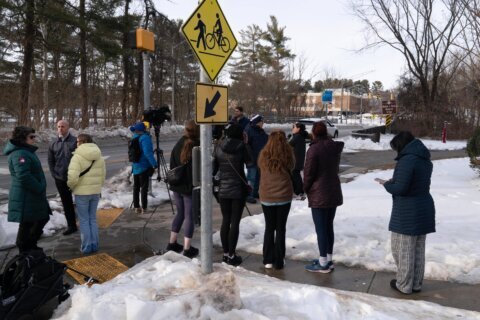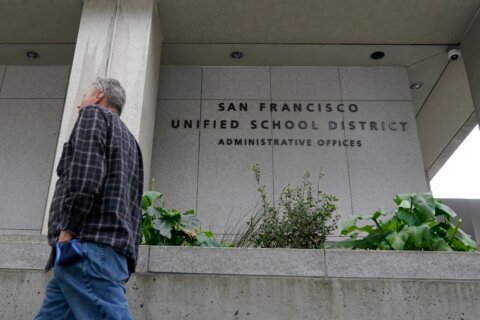Normally, the Free Application for Federal Student Aid process, commonly known as FAFSA, begins in the fall and high school seniors know how much financial aid they qualify for by the spring — as they decide where to go to college.
Current college students receiving financial aid also rely on it every year to help them continue their education. But even in late April, well past the deadline for most schools, there’s uncertainty and chaos involved in the process, leaving incoming freshmen unsure if they can afford to go to college and leaving current college students unsure if they can continue.
This school year, the process didn’t begin until Dec. 31 as the federal government finally overhauled the FAFSA application system with a new process that was supposed to be simpler and easier than before. Instead, it’s been the opposite of that.
“It’s been absolutely horrible,” said Elmer Mendoza, of Silver Spring, Maryland, who is finishing his sophomore year at Johns Hopkins University where he studies mechanical engineering. “If something gets resolved, there’s another problem. And if that problem gets resolved, then there’s another problem. So yeah, it’s just a never-ending process of problems.”
In years past, the forms he had to fill out would be handled within an afternoon, if not less than an hour. This newer process has the potential to keep him and other students out of summer and fall classes this year.
“We actually expected it to be a lot better than it has been,” said Mecha Inman, the CEO of CollegeTracks, a Montgomery County-based program that helps students like Mendoza who come from low-income or immigrant families navigate the college and financial aid application process. “They’ve been working on the new FAFSA for many years, that we would have hoped that they would have test piloted this new application to get the glitches out. And instead now, we are kind of testing it on our scholars whose hopes and dreams are real.”
She argued the process that’s supposed to help children in low-income families get the education they need to move up the economic ladder, will instead increase economic inequities, since those who come from already more affluent families are the only ones not worried.
For four months now, Angel Diaz has been stymied at the very beginning of the process by the fact that his mother doesn’t have a Social Security number, and thus, he can’t verify her identity. In years past, that wasn’t a problem for him. Now, he keeps getting emails from the University of Maryland warning him his forms are incomplete, which jeopardizes his chances of continuing college.
“It put me in a lot of stress and for the fall of next year, it’s got me thinking like ‘am I going to be able to pay it off on my own if it doesn’t get resolved?,'” Diaz said. “My parents don’t make much money and myself, I don’t have that much money saved up to pay it all off. So it kind of is worrying and stressful at the same time.”
In many cases, colleges and universities have extended the deadlines associated with enrolling by weeks, if not more than a month as the FAFSA rollout struggles on. But Inman said even when schools do get the FAFSA information from the federal government, it can often be wrong.
“One institution shared with us last week that 40% of the student aid index — that’s the amount of money that families allegedly can afford — they were wrong,” said Inman. “While information is slowly trickling to institutions, it’s not the correct information.”
At this point, colleges in Maryland have pushed their deadlines back to May 15, about six weeks later than usual. Schools in Virginia are also pushing deadlines back. But those newer, later deadlines are now approaching too. At the University of Maryland, there’s an expectation that the deadline will be pushed back once more, though for how long is still undetermined.
“Let’s make sure … that each institution saves space for every scholar they have accepted as we wait for decisions for the federal government to clean this up,” said Inman. “We need institutions to continue to extend their deadlines for however long it takes for the federal government to get this right.”
In an email sent to WTOP, Tom McDermott, associate vice provost for financial aid at Johns Hopkins University, addressed the issue of students needing financial assistance for college.
“We are mindful of the challenges some students are facing and are prepared to consider deposit extensions on a case-by-case basis. Applicants with questions should reach out using the contact information they received with their acceptances,” McDermott said. “Additionally, undergraduate applicants who applied for financial aid and completed the CSS Profile, available since October 1 of last year, have received a financial aid offer from us. This ensures that undergraduate students have the necessary financial information to make informed decisions about their enrollment.”
Get breaking news and daily headlines delivered to your email inbox by signing up here.
© 2024 WTOP. All Rights Reserved. This website is not intended for users located within the European Economic Area.








